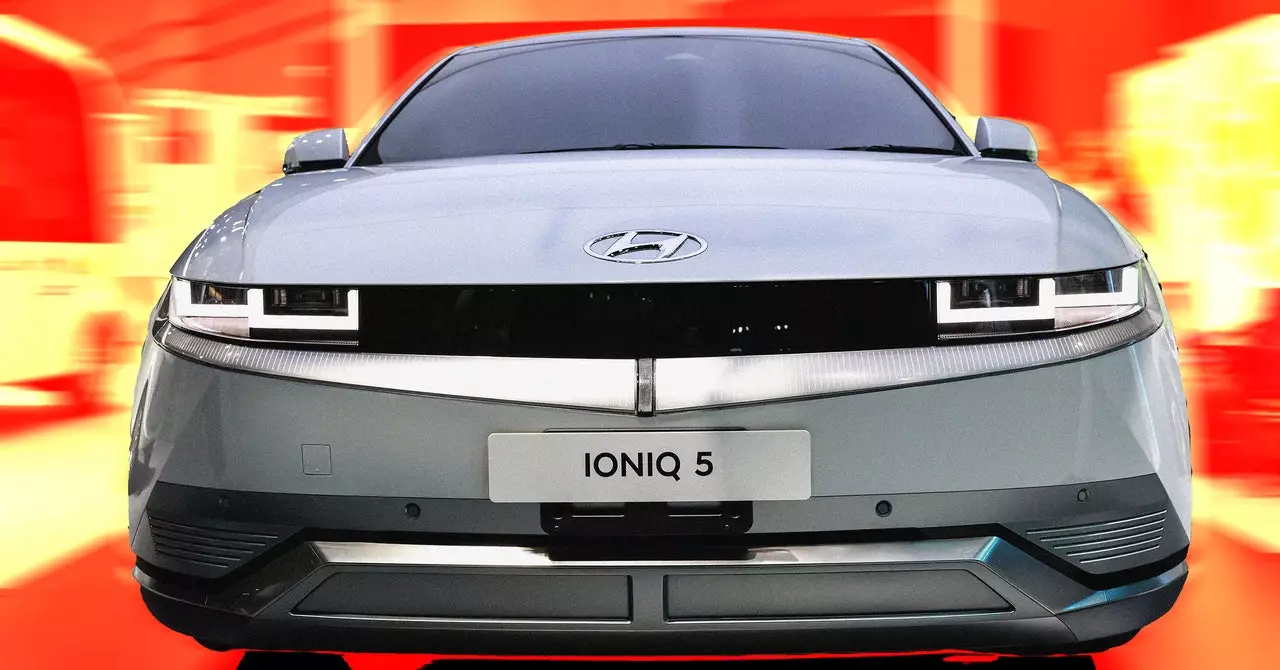The automotive landscape is rapidly transforming, with innovations in electric and autonomous vehicles at the forefront of this evolution. A significant development is the recent partnership between Waymo, a leader in self-driving technology, and Hyundai, a prominent player in the automotive industry. This collaboration not only highlights the strides being made in self-driving technology but also raises pertinent questions about the future dynamics of automotive production and international trade policies. As we delve into this partnership, it’s crucial to examine its broader implications for the automotive sector and global markets.
The announcement that Waymo will equip a fleet of modified Hyundai Ioniq 5 electric vehicles with its self-driving technology marks a noteworthy milestone in autonomous transportation. This partnership, targeting a late 2025 rollout, is positioned as a foundational step towards deeper collaboration between the two companies. José Muñoz, president and COO of Hyundai Motor Company, expressed optimism about exploring further partnership opportunities, which could eventually lead to the integration of Waymo’s technology into Hyundai’s consumer vehicle line.
This partnership arrives at a time when automakers are under pressure to innovate continuously, particularly in the realm of electric and self-driving vehicles. As consumer preferences increasingly shift towards more environmentally friendly and technologically advanced vehicles, collaborations like that of Waymo and Hyundai could set the stage for competitive advantages in a congested marketplace. However, the success of such ventures hinges not only on technological prowess but also on regulatory frameworks and public acceptance—factors that remain uncertain.
The backdrop of this partnership is painted with rising geopolitical tensions, particularly concerning trade with China. There is an ongoing narrative regarding China’s ascendancy in the global automotive sector, which has alarmed many Western nations. Automakers in the United States and Europe are articulating concerns over perceived unfair trade practices that favor Chinese manufacturers, particularly in the realm of electric and autonomous vehicles.
Recent policy decisions by Western governments, such as increased tariffs on Chinese-made electric vehicles and potential bans on related software and hardware, reflect a protective stance against what they perceive as national security threats. Officials warn that reliance on foreign technology—especially from adversarial nations like China—might jeopardize national interests, particularly in sectors as critical as transportation.
Waymo’s strategic decision to maintain its partnership with Zeekr, a Chinese-owned manufacturer, illustrates the complexity of navigating these turbulent waters. While the partnership with Hyundai might seem more strategically aligned with Western business ethos, Waymo continues to foster its ties with Zeekr, emphasizing a dual strategy that aims to capitalize on efficiencies in production while adhering to regulatory scrutiny.
In light of national security concerns, it becomes paramount to understand how Waymo and companies like Hyundai intend to mitigate these risks. Waymo has been clear about its operational model, asserting that the autonomous technology installed in Zeekr vehicles remains entirely under US control. Company representatives emphasize that the base vehicles provided by Zeekr lack driving automation capabilities and that only Waymo’s US-based personnel are responsible for installing the self-driving technology.
This delineation is essential, as safety and data sovereignty issues will undoubtedly be scrutinized as autonomous vehicles take to public roads. The assurance that these vehicles will not maintain a continuous connection with their manufacturers overseas is a critical point that could influence public perception and regulatory endorsement.
Despite the enthusiasm surrounding the partnership between Waymo and Hyundai, the road ahead is fraught with challenges. Regulatory hurdles, public sentiment, and the evolving competitive landscape in the automotive industry present considerable obstacles that both companies must navigate. Additionally, questions about the technological efficacy of self-driving systems and their integration into urban infrastructure remain central to the future adoption of autonomous vehicles.
As Waymo prepares for the rollout of its self-driving ride-hail service in late 2025, its partnership with Hyundai will undoubtedly serve as a litmus test. This collaboration may not only shape the technological direction of both firms but also influence the broader spectrum of autonomous vehicle development globally.
The interplay of innovation, regulation, and global trade dynamics will ultimately determine whether partnerships like Waymo and Hyundai can thrive in an increasingly scrutinized environment. As we continue to observe these developments, it becomes clear that the automotive industry stands at a crossroads, one heavily defined by technological advancement and the corresponding regulatory apparatus that governs it.

